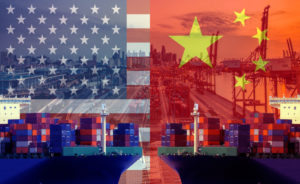
U.S. Rep. Jackie Walorski (R-IN) on Feb. 28 introduced her chamber’s version of the bipartisan, bicameral Import Tax Relief Act to remove certain tariffs imposed on goods imported from China so that U.S. companies don’t have to pay such high duty fees on those imports.
“I support President Trump’s goal of stopping China’s unfair trade practices, but we need to do so in a way that does not harm American farmers, manufacturers, and workers,” Rep. Walorski said.
The congresswoman is the lead original cosponsor of H.R. 1452, sponsored by U.S. Rep. Ron Kind (D-WI) to require the establishment of a process for excluding articles imported from the People’s Republic of China from certain duties imposed under Section 301 of the Trade Act of 1974, according to the congressional record.
“I am hopeful the ongoing trade talks with China will lead to long-term benefits for our economy, but the administration must do more to create certainty for businesses and farmers and to stay focused on the goal of holding China accountable,” she said on Thursday during a U.S. House Ways and Means Committee hearing.
The first two rounds of tariffs imposed under Section 301 of the Trade Act included an exclusion process by which U.S. importers may request exemption from the tariffs, according to Rep. Walorski’s statement.
However, the third round of tariffs imposed by the president in September 2018 on $200 billion worth of Chinese goods didn’t provide for an exclusion process, she added.
Rep. Walorski cited data from the Congressional Research Service showing that as of Feb. 21, U.S.-based importers have paid more than $12 billion to the government as a result of these imposed tariffs under Section 301.
And in response to questions from Rep. Walorski during last week’s committee hearing, U.S. Trade Representative (USTR) Robert Lighthizer indicated that his office won’t be able to meet the 30-day deadline for establishing such a process that was set in a recent funding bill approved by Congress.
That didn’t make Rep. Walorski happy.
“A fair and transparent exclusion process for the latest round of China tariffs is long overdue, but it is clear USTR does not intend to meet the deadline imposed by Congress to establish one,” said Rep. Walorski. “As a result, this bipartisan bill is necessary to provide much-needed relief to the American businesses and consumers paying the cost of these import taxes.”
If enacted, H.R. 1452 also would permit United States companies to apply for a refund for duties paid on the imported goods under the 301 tariffs granted an exclusion.
“American companies deserve a process to petition our government to prove how and why these tariffs are hurting their bottom line, their workers and their consumers,” Rep. Kind said. “The administration’s unwillingness to create this exemption process has forced Congress to reassert its constitutionally granted powers and move forward in finding a soft landing zone for our workers, farmers and families – with or without the help of the administration.”
U.S. Sen. James Lankford (R-OK) on Feb. 27 introduced the same-named S. 577 along with U.S. Sen. Chris Coons (D-DE).
Sen. Lankford said many Oklahoma businesses are concerned about the impact the tariffs could have on them hiring employees, giving back to their communities, and expanding their business operations.
“Already, American importers have paid the U.S. government more than $12 billion in import taxes due to last year’s tariff action on Chinese imports, which has a direct impact on our economy since those costs are passed down to consumers in the form of price increases on food, clothing and shelter, on which low-income families spend a disproportionate share of their incomes compared to wealthier families,” he said.
H.R. 1452 has been referred for consideration to the House Ways and Means Committee, while S. 577 is under review by the U.S. Senate Finance Committee.



